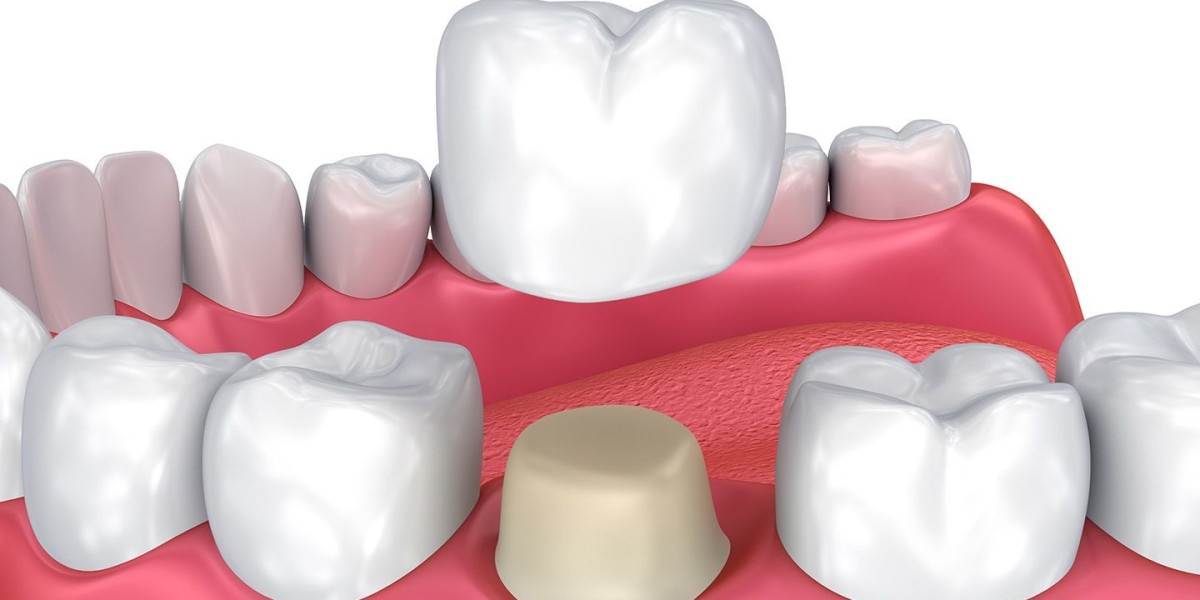Introduction to Dental Crowns
Are you looking to restore your smile and boost your oral health? Dental crowns could be the solution you've been searching for! These versatile dental restorations offer both cosmetic enhancement and functional support, making them a popular choice for many individuals. In this blog post, we'll dive into everything you need to know about dental crowns in Phoenix, from the different types available to the cost and care involved. Let's explore how dental crowns can help you achieve a confident smile and optimal oral well-being.
Different Types of Dental Crowns
When it comes to dental crowns, there are several different types to choose from based on your specific needs and preferences. One common type is porcelain-fused-to-metal crowns, which provide a natural appearance while offering durability. Another option is all-ceramic or all-porcelain crowns, known for their aesthetic appeal as they closely resemble natural teeth.
For those with metal allergies or concerns about aesthetics, zirconia crowns may be a suitable choice due to their strength and ability to blend seamlessly with surrounding teeth. Gold alloy crowns are also available for individuals seeking a long-lasting solution that can withstand heavy chewing forces.
Each type of dental crown has its own unique benefits and considerations, so it's essential to discuss with your dentist the best option for your oral health needs.
The Procedure of Getting a Dental Crown
When it comes to getting a dental crown, the procedure is typically straightforward and can help restore both the function and aesthetics of your smile. The first step involves numbing the area around the tooth to ensure you are comfortable throughout the process.
Next, the dentist will prepare the tooth by removing any decay or damage before shaping it to accommodate the crown. Impressions of your teeth are then taken to create a custom-made crown that fits perfectly in your mouth.
While waiting for your permanent crown to be fabricated, a temporary crown may be placed over the prepared tooth to protect it. Once ready, the permanent crown is cemented into place, giving you a durable and natural-looking restoration.
Getting a dental crown is a relatively simple procedure that can improve both the appearance and functionality of your smile with lasting results.
Benefits and Advantages of Dental Crowns
When it comes to dental crowns, the benefits and advantages are numerous. One of the key advantages is that they provide strength and protection to damaged or weakened teeth. Whether you have a cracked tooth or a large cavity, dental crowns can restore your tooth's functionality and appearance.
Another benefit of dental crowns is their durability. Made from materials like porcelain, ceramic, or metal, these crowns are designed to withstand daily wear and tear for many years. This means you can enjoy eating all your favorite foods without worrying about damaging your crown.
In addition to their functional benefits, dental crowns also offer cosmetic advantages. They can improve the shape, size, color, and overall appearance of a tooth, enhancing your smile and boosting your confidence.
Furthermore, getting a dental crown is a relatively quick and straightforward procedure that can be completed in just a couple of visits to the dentist. With proper care and maintenance, dental crowns can last for 10-15 years or even longer.
Dental Crowns in Phoenix bring both practicality and aesthetics together in one effective solution for various dental issues.
Caring for Your Dental Crowns
Caring for your dental crowns is essential to ensure their longevity and maintain your oral health. Regular brushing and flossing are crucial to keep the area around the crown clean and free from plaque buildup. Use a soft-bristled toothbrush to avoid damaging the crown or causing gum irritation.
Avoid chewing on hard foods like ice or using your teeth as tools, as this can put unnecessary strain on the crown and potentially cause damage. It's also advisable to steer clear of sticky candies that could dislodge the crown or get stuck underneath it.
Regular dental check-ups are key in monitoring the condition of your crowns and catching any issues early on. Your dentist will be able to assess if there are any signs of wear or damage that need attention.
In addition, maintaining a healthy diet low in sugar can help prevent decay around the edges of the crown. By following these simple care tips, you can protect your dental crowns and enjoy a beautiful smile for years to come.
Common Misconceptions About Dental Crowns
Misconceptions about dental crowns are not uncommon. Some people believe that getting a dental crown is painful, but in reality, the procedure is typically painless and done under local anesthesia to ensure your comfort. Another misconception is that dental crowns are only for older individuals, whereas they can benefit anyone with damaged or weakened teeth.
There's also a myth that dental crowns require special maintenance or cleaning routines. The truth is that caring for your crown involves regular brushing, flossing, and routine check-ups – just like you would care for your natural teeth. Additionally, some may think that getting a dental crown means losing their original tooth structure permanently. However, modern techniques allow dentists to preserve as much of the natural tooth as possible while still providing the necessary support for the crown.
It's essential to separate fact from fiction when it comes to dental crowns so you can make informed decisions about your oral health.
How Much Do Dental Crowns Cost?
When considering dental crowns in Phoenix, one common question that arises is, "How much do dental crowns cost?" The cost of a dental crown can vary depending on several factors. The type of material used for the crown, the expertise of the dentist performing the procedure, and any additional treatments needed before placing the crown all play a role in determining the overall cost.
On average, porcelain-fused-to-metal crowns tend to be more affordable than all-ceramic or zirconia crowns. Additionally, if you have dental insurance, it may cover a portion of the cost of getting a dental crown. It's essential to consult with your dentist to get an accurate estimate based on your specific needs and circumstances.
While the price may seem like a significant factor, it's crucial to prioritize quality when it comes to your oral health. Investing in a durable and well-fitted dental crown can help prevent future complications and maintain your smile for years to come.
Alternatives to Dental Crowns
When it comes to dental restoration, there are alternatives to traditional crowns that may be suitable for your needs. One option is dental veneers, which are thin shells placed on the front of teeth to improve their appearance. Veneers can help with minor cosmetic issues like discoloration or small gaps between teeth.
Another alternative is dental bonding, which involves using a tooth-colored resin material to fix chips, cracks, or gaps in teeth. Bonding is a more affordable and less invasive option compared to crowns or veneers. It can provide immediate results and typically requires only one visit to the dentist.
For more extensive damage or structural issues, dental implants may be considered as an alternative to crowns. Implants involve surgically inserting a titanium post into the jawbone to support a replacement tooth. This long-term solution can restore both function and aesthetics effectively.
Each alternative has its own benefits and considerations depending on your specific oral health needs and goals. Consulting with your dentist will help determine the most suitable option for you.
Conclusion
Dental crowns are a versatile and effective solution for various dental issues. Whether you need to restore a damaged tooth, improve its appearance, or protect it after a root canal, dental crowns offer durability and aesthetics. By understanding the types of crowns available, the procedure involved in getting them, their benefits, and proper care techniques, you can make an informed decision about your oral health.
Remember that maintaining good oral hygiene practices is essential to prolonging the lifespan of your dental crowns. Regular visits to your dentist in Phoenix for check-ups and cleanings will ensure that your crowns stay in optimal condition.
If you are considering dental crowns as a treatment option or have any concerns about your oral health, don't hesitate to consult with a qualified dentist who specializes in providing top-notch care for all your dental needs. With proper care and maintenance, dental crowns can help you achieve a healthy and confident smile for years to come.









